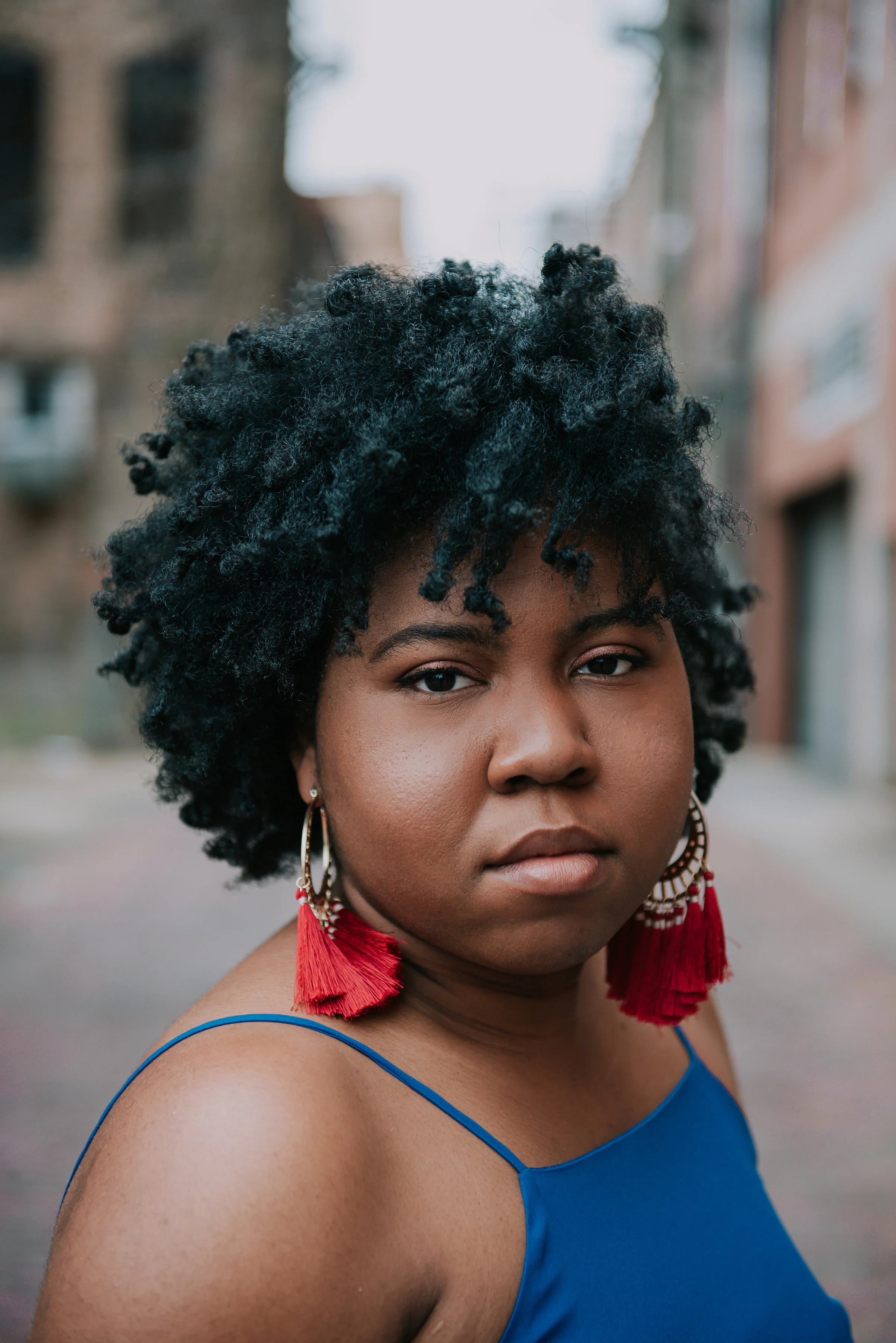Ashley M. Jones is the author of Magic City Gospel (Hub City Press, 2017), winner of the silver medal in poetry from the Independent Publishers Book Awards, and dark // thing (Pleiades Press, 2019), winner of the Lena-Miles Wever Todd Prize for Poetry from Pleiades Press. She received a Rona Jaffe Foundation Writers Award, and she holds an MFA in poetry from Florida International University. She lives and teaches in Birmingham, Alabama.
Hostile Environment
after Solmaz Sharif
According to slave codes, slaves were not allowed to gather without a white person present to prevent anything masters deemed dangerous: education, revolt, joy, or religious worship. Slaves often met in secret for church.
the morning is breaking on us, HOSTILE in its soft opening.
this morning so beautiful, so calm it makes these fields look fertile with fruit
instead of blood, the HOSTILE thorns just glittering teeth in the distance.
we here to praise him, HOSTILE god,
here to hear the word, its holy HOSTILITY, its promise that there is more than death in death—
here, the shaky preacher’s wail, HOSTILE against the walls of the shack,
this church, a gathering of worshippers, HOSTILE and gaping—
we stomp our feet, each beat burning, HOSTILE and loud,
we shouting now and Master’s sure to hear.
maybe he’ll let us be, HOSTILE, maybe he’ll slide a hand around his wife’s HOSTILE hip
and make this morning move
or maybe
the spirit of the lord, its HOSTILE sugartongue, will draw him to the horsewhip,
HOSTILE and gentle in its quick, quiet rage—
Uncle Remus Syrup Commemorative Lynching Postcard #25
To commemorate or to circulate news of a lynching in Reconstruction and post-Reconstruction America, photographers would take photos of the killing and send it—sometimes accompanied by a racist poem to “warn” Black people of what would happen to them if they didn’t behave—as a postcard. By 1908, lynching postcard photos became so repulsive that the US Postmaster General banned these cards from circulation.
In the 1920s, the slogan for Uncle Remus Brand Syrup was ‘Dis Sho’ Am Good.’
Dis sho am good Dis sho am good Dis sho am good [the rope, its fibers a fire] Dis sho am good Dis sho am good Dis sho am good [the crowd, stuffed full of potato salad and blueberry pie] Dis sho am good Dis sho am good Dis sho am good Dis sho am good [little Timothy stands near the black toes, smiling. And, look, he’s finally lost that front tooth!] Dis sho am good Dis sho am good Dis sho am good Dis sho am good Dis sho am good Dis sho am good [the tooth fairy is white, like Uncle Remus’ woolly beard] Dis sho am good Dis sho am good Dis sho am good Dis sho am good Dis sho am good Dis sho am good [and the sunlight’s beaming off the pink fingertips—as they sway, the light plays a twinkling show] Dis sho am good Dis sho am good Dis sho am good Dis sho am good [his neck, a rubber toy] Dis sho am good Dis sho am good Dis sho am good [his eyes, white gumballs] Dis sho am good Dis sho am [look how the tree holds him taut] Dis sho [and Betty Lou brought all that delicious fried chicken her gal made, so crunchy, so sweet we even ate the bones] Dis show [the perfect weather to hang a nigger, said Bill] Dis Dis Dis Dis [and John got on one knee and asked Laura to marry him right before the nigger squirmed his last] Dis Dis Dis Dis Dis [how many nickels will little Timothy get under his pillow tonight?] sho sho sho sho sho sho am [next time, let’s hang two—better for the photo, and maybe Frankie Sue can put it in the paper] good good good good good [and maybe] good [we can hang a whole family]
